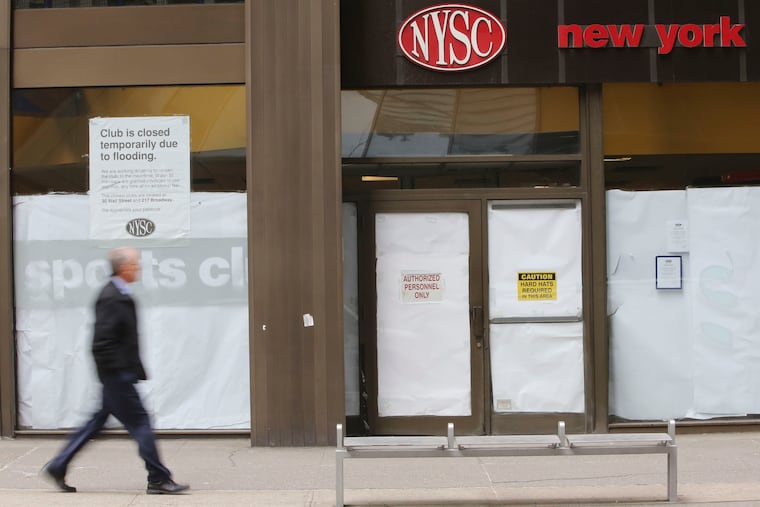Philadelphia Sports Clubs' parent company files for bankruptcy
“Town Sports International is not going out of business,” the company said in a statement.

Town Sports International, the parent company of Philadelphia Sports Clubs and other fitness clubs, has filed for Chapter 11 bankruptcy in the face of a looming debt deadline and coronavirus-related revenue shortfalls.
This does not mean Philadelphia Sports Clubs and other clubs and gyms owned by Town Sports International are closing.
All facilities open under local coronavirus guidelines will stay open for members with regular schedules and service, according to the online announcement. Employees will also continue to receive the same pay and benefits.
“Members should not notice any changes to their fitness journeys,” the company said.
The publicly traded, New-York based gym company was saddled with heavy debt before the coronavirus pandemic shut down gyms across the country, and this move allows it to keep its facilities open while coming up with a plan to pay its creditors and rescue the business.
The coronavirus pandemic has hit gyms especially hard, with mandated shutdowns and members hesitant to return even when they reopen. The chains 24 Hour Fitness Worldwide Inc. and Gold’s Gym International Inc. have also filed for bankruptcy during the pandemic.
Town Sports estimates its total debt and assets at $500 million to $1 billion each in its filing in the U.S. Bankruptcy Court in Wilmington. Town Sports failed to make all payments on a loan due last month. The full loan of $178 million remaining is due mid-November.
“Town Sports International is not going out of business,” the company said in a statement. “Restructuring is the best way to properly respond to the COVID-19 pandemic, with the long-term goal to emerge as a thriving powerhouse in the fitness industry.”
» READ MORE: Gyms and fitness studios are changing layouts, spreading out machines, and implementing time limits as they reopen
Town Sports owns 185 fitness clubs, mostly in the Northeast and Mid-Atlantic region and serving about 580,000 members, according to its most recent quarterly filing, Sept. 4. Five of those facilities are in Philadelphia, 99 in New York City, and 31 in Boston.
But by the end of March, like many other gyms, Town Sports was forced to close its facilities to adhere to local and state guidelines as the coronavirus spread. The severe financial impact of this forced the company to permanently close eight clubs during the second quarter, and it expects to shut down more facilities this quarter.
Though the company had 9,200 employees, about 1,900 of whom were employed full time, going into this year, it laid off a majority of its employees and stopped paying rent to conserve cash during the pandemic, the company said in its most recent quarterly filing, on Sept. 4, for the three months that ended March 31. The company had warned investors earlier this summer that it was considering filing for bankruptcy.
“The scope and duration of the interruption to our operations has substantially reduced our cash flow,” the company said in a June financial filing. “In response to these challenges, the company’s board of directors is actively considering all strategic alternatives, including but not limited to negotiating with existing lenders, engaging with potential financing sources to raise capital, or filing for bankruptcy.”
Revenue dropped about 16%, to $98.1 million in the first quarter from $116.6 million in the year-ago period, the company announced in its quarterly filing. The company lost $136.3 million this quarter, compared with a $2.1 million loss for the same period last year. (The company said its report filing was delayed by business disruptions caused by the pandemic.)
Meanwhile, its stock closed Monday at $0.32, a drop of almost 81% from the start of the year.
“The duration of the COVID-19 pandemic and the extent of its impact on our business cannot be reasonably estimated at this time," the company said about its first-quarter earnings results. "We anticipate that the COVID-19 pandemic will continue to negatively impact our operating results in future periods.”